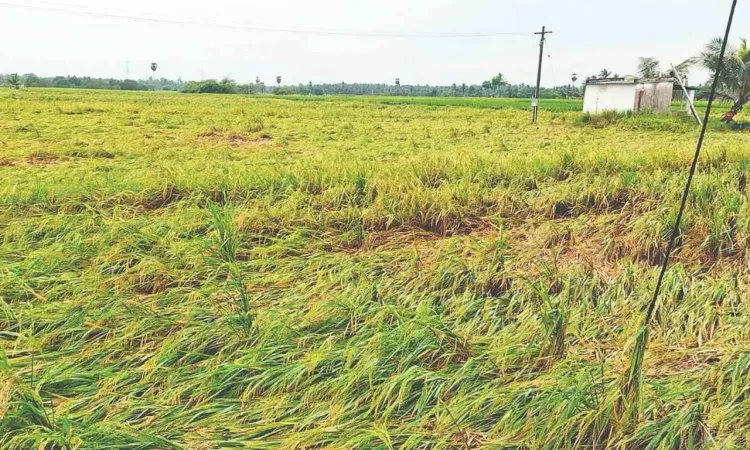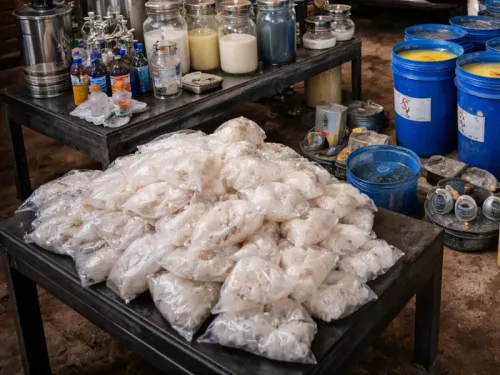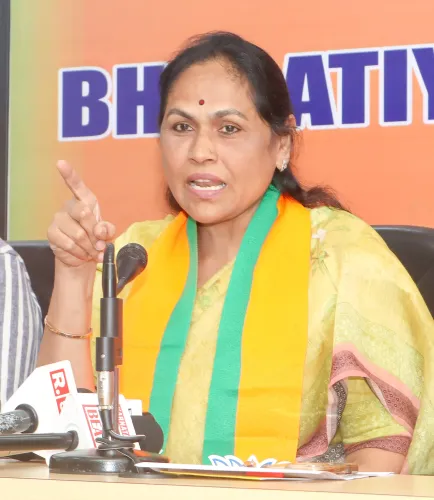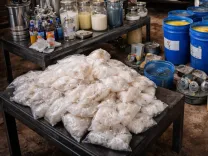Should TN Delta Farmers Receive Rs 35,000 per Acre as Compensation for Crop Damage?

Synopsis
Key Takeaways
- Farmers are demanding Rs 35,000 per acre for crop damage.
- Extensive waterlogging affects both kuruvai and samba crops.
- Over one lakh acres of farmland are submerged.
- Pandian urges immediate action from the Tamil Nadu government.
- A call for a standardized paddy procurement process has been made.
Chennai, Oct 28 (NationPress) Farmers in the Cauvery Delta are grappling with severe crop devastation due to persistent rainwater accumulation across thousands of acres of paddy fields, jeopardizing both the harvested kuruvai and the standing samba crops. They have called upon the Tamil Nadu government to provide increased compensation of Rs 35,000 per acre following a prompt and transparent assessment of damages.
As reported by the All Farmers Association Coordination Committee, over one lakh acres of kuruvai fields in Thanjavur, Tiruvarur, Nagapattinam, and Mayiladuthurai districts remain submerged. Additionally, approximately 50,000 acres of standing samba crops are affected, with no immediate relief in sight as water levels show no signs of receding.
Farmers have resorted to hiring motors at their own cost to eliminate stagnant water and salvage what they can.
P.R. Pandian, president of the coordination committee, highlighted the dire situation in Tiruvarur district, particularly in areas like Arasur and Ilaiyur.
“Samba crops are starting to decay in the inundated fields. Furthermore, the harvested kuruvai stock has sustained rain damage due to a sluggish procurement process. A shortage of gunny bags is further hindering collection at various Direct Procurement Centres (DPCs). The state must take full accountability for the losses and expedite relief measures,” he stated.
Pandian noted that nearly two lakh metric tonnes of paddy are uncollected in Tiruvarur alone, with similar scenarios in neighboring districts.
He urged the Tamil Nadu Civil Supplies Corporation (TNCSC) to promptly transport paddy with elevated moisture levels to avert further deterioration and to accelerate procurement efforts.
The farmers' leader also emphasized the need for establishing a Standard Operating Procedure (SOP) for paddy procurement to prevent a recurrence of such a crisis in the future.
He accused the management of procured paddy transportation of inefficiency due to inadequate oversight. “Currently, lorry operations aren't under the direct control of TNCSC officials but are being managed by contractors. This must be rectified to enhance accountability in the system,” Pandian concluded.










